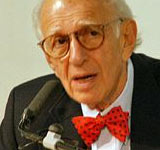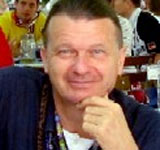Learn more
- Jun 3, 2008
Chasing and understanding memory, intelligent synapses and the concept of lying (on the web).
It’s hard not to be fascinated by questions like how the brains are working, how memories emerge and whether synapses can be intelligent? On the web, the idea of the wisdom of crowds or massively distributed systems are hardly new. „We“ really seems to be better than „me“. But how should we deal with new ethics and behaviors?
Within the last days I came across two fascinating scientists: Eric Kandel and Volker Sommer. Thinking about how this can all be applied to the Semantic Web leads to hundreds of associations.

What are memories? How are they generated? How do they work? The Los Angeles Times features a four-part article on “Chasing Memory“.
„It is because the neurons are not physically connected that communication between them is never certain. You never know whether a key is going to find a lock. This is thought to be why any cognitive activity, including memory, is approximate. Sometimes the connections are made; other times they are not. (…) The … hypothesis can be summarized by saying: After two neurons have successfully made contact once — that is, after the neurotransmitters have attached to receptors — the next time the original cell releases its neurotransmitters, there is a much greater chance the neighboring cell will receive them. There is a greater chance a key will find a lock.“
So – what’s the conclusion of this? What does it mean for the Semantic Web research? Collaboration? Social Semantic Web? One more aspect:
The lie in social networks.

And what about semantics?
Ludwig Wittgenstein: Lying is a language game – it needs to be trained. Das Lügen ist ein Sprachspiel, das gelernt sein will, wie jedes andre. (Aus: Philosophische Untersuchungen, § 249.)
What this means for social networks? As a fan of fantasy as such – I love the conception. As a working person I wonder what’s going to happen.
As always – very curious about future developments…
Marion.
